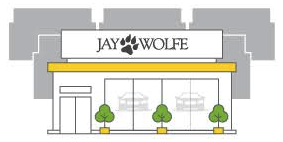Why is a Down Payment Recommended?
You’re shopping for a car. Every car ad that you look at – new, used, or certified pre-owned – has a payment listed. In the details, there’s an explanation that tells you what that payment amount is all about, and it nearly always includes a down payment. Why is a down payment always recommended or required?
What a Down Payment Does
When you get a car loan, you’re borrowing money from a lender. That may be obvious, but there’s more to it. A lender, whether it’s a bank, a dealership’s in-house financing department, or a dealer finance partner, is putting their money on the line so you can buy a car.
Their reward is the interest charges that are part of your car payment. But when a car is first purchased, the amount is for the whole value of the car. It’s risky for a lender, especially until the loan amount is less than the vehicle’s value.
It Lowers the Risk for Lenders
To minimize the risk associated with the loan, lenders like to see you provide a down payment. It can be in the form of cash or credit, or it can be from equity on a trade-in. Either way, the money you put in up front lowers the risk for the lender, making the loan amount less than the car’s value.
To the bank or financial institution, it’s all business. To you, buying a car is personal. Don’t take offence if the lender decides you need to provide a larger down payment to finance the car you want – it’s a numbers game for them.
A Down Payment Proves You’re Serious about Repayment
If you’ve had credit issues, lenders may question your willingness and ability to repay your car loan. When you have a down payment, it shows you’re serious about making your payments. You’d be losing money if your car needs to be repossessed, so the odds that you’ll default on your payments is much lower.
Compare that to a car loan with zero money down. If a person finances a car with no down payment, there’s less feeling of commitment to make your payments.
It Lowers Your Payment Amount
Whether you trade in a car or have cash in hand for your down payment, the amount you’ll need to fork over every month for your car loan will be lower. Over the long run, it actually saves you money!
Putting down cash on a car loan reduces the amount of interest you’ll be paying over the course of your loan. If you’re able to handle a higher payment, it can reduce your loan length, also saving you cash over the long haul.
You may qualify for a car loan without a down payment or trade in value. Even if you qualify, it’s still prudent to put down money on your car purchase. You might qualify for a lower interest rate, your payment will be lower, and it may be the factor that decides whether or not you can obtain financing for your vehicle!
If you have questions about your down payment, contact CarUp KC. We’d love to help you find your next vehicle, regardless of your credit situation.


